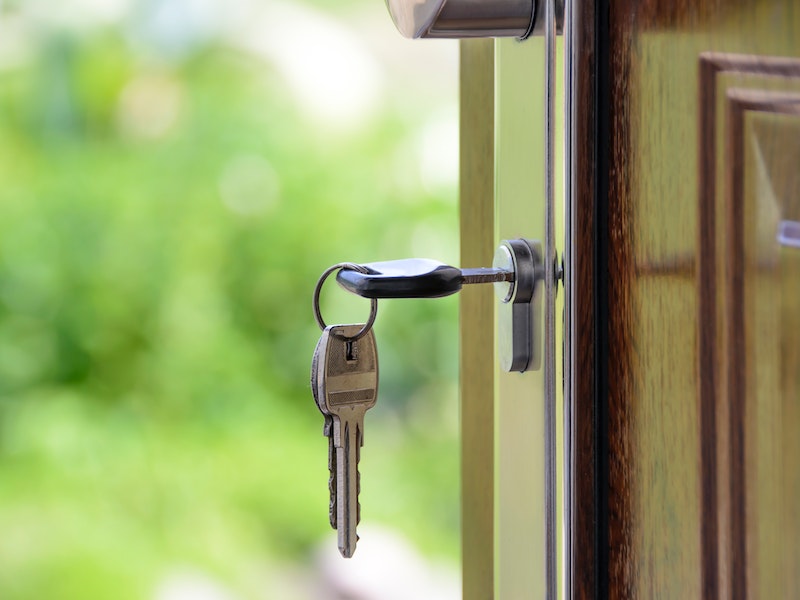Are you an auction enthusiast looking for some tips on how to win? It’s understandable that you might feel a bit overwhelmed by the auction process and not know where to start. But have no fear, because with the right strategies and techniques in hand, winning at auctions can be surprisingly simple! With this article, you’ll learn proven tactics that can help you maximize your chances of success and get the best deals at auctions. So read on and let’s get started!
Introduction to Auctions

Auctions have been a popular method of selling goods and services for hundreds of years. In today’s world, auctions are incredibly versatile and may take place in both physical and virtual settings. At its core, an auction is a bidding process in which participants compete to purchase a particular item or service at the lowest price possible. To win an auction, participants must be prepared to outbid the competition and understand the rules and regulations associated with their chosen auction.
There are multiple types of auctions, ranging from English auctions to sealed-bid auctions, as well as hybrid auctions that combine aspects of both. English auctions, also known as open shout auctions, require bidders to announce their bids openly until all but one bidder remains. Alternatively, sealed-bid auctions require participants to submit their bids privately in sealed envelopes before all participating bids are opened at once. Regardless of the type of auction chosen, it is essential that bidders develop effective auction strategies if they wish to maximize their chances of success.
Successful bidding begins with being fully aware of the item or service being up for auction. Bidders should research the item they are interested in ahead of time to gain a better understanding of its market value, any existing damages it may have, and what bids other potential buyers have placed. This information can help bidders decide how much money they should invest in the item or service and how competitive their bid needs to be in order to win.
Additionally, bidders should come prepared with a budget that allows them to stay within their desired spending limit. By setting a predetermined budget and sticking to it, bidders can avoid overspending on items that do not suit their financial goals or exceed what they are comfortable investing in them. It is important for bidders to remain realistic about how much money they can invest and make sure that their final bid price is reasonable enough for them to make a return on their investment if necessary.
Strategies for Winning
Doing research before an auction can help bidders prepare and give them an advantage when bidding. Before attending an auction, it is important to research the items that will be up for sale and the expected selling prices. This allows bidders to have an idea of a budget for individual items and also helps them better assess the value of specific items. In addition, researching the type of auction that is taking place is also essential, as different types of auctions have different rules and procedures that bidders must abide by in order to participate successfully.
Bidding strategy is another key element in winning at an auction. Knowing when to be aggressive and when to be passive is crucial in order to ensure that bidders get good deals without overspending. Aggressive bids are more likely to win, but they can also lead to excessive expenditure if bidders do not stay within budget limits. Passive bidding may mean missing out on desirable items, as other bidders are often willing to pay more for them. It is important to find a balance between these two strategies in order to maximize one’s chances of success.
It is also important for bidders to maintain emotional control during the process. Excitement or frustration can cause bidders to make irrational decisions which can result in overspending or underbidding. When emotions start running high, it’s best for bidders to take a step back, take a deep breath and make sure they don’t let their excitement or frustration drive their decisions too much. This will enable them to remain focused on their pre-determined budget and help them stay disciplined while bidding.
Finally, it is essential for bidders to have patience when participating in auctions. Bidding wars can be exciting, but they can also lead to hasty decisions and impulse bidding – both of which should be avoided at all costs. It is important for bidders to remain patient when bidding and avoid getting caught up in the heat of the moment. Taking a few minutes to assess each item before placing a bid can help ensure that the final bid price is a worthwhile investment.
Overall, winning at auctions requires careful planning and disciplined bidding. Researching the auction and its items ahead of time, understanding the different types of auctions, finding the right balance between aggressive and passive bidding and staying emotionally levelheaded are all important factors in successful auctions. With the right strategies, bidd
Assessing the Value of Items
It is essential for those attending a housing auction to assess the value of the items being auctioned off before placing any bids. Doing research ahead of time regarding the current market prices of similar items is a great place to start. This provides an indication as to whether or not the expected price of the item is reasonable and worth investing in. Additionally, it is helpful to set a strict budget before attending an auction in order to prevent overspending due to excitement or competitiveness during bidding.
When examining an item up for auction, it is important to compare its condition and features with similar items in order to determine if they are of equal or higher value. This can help inform the final bid price and give more clarity on how much money should be spent on purchasing the item. Furthermore, looking into the provenance and history of an item can be beneficial too, as this helps provide further insight into its potential value and worth.
To sum up, assessing the value of items when participating at housing auctions is essential in order to make informed decisions when bidding. Doing research on current market prices beforehand, setting a budget prior to attending, carefully comparing items with other similar ones, and researching the provenance and history of items can all be beneficial strategies for assessing the value of any item up for auction. By taking these steps, you will be better prepared to make wise decisions and bid confidently on any items that you feel are worth investing in.
Tips for Bidding Discipline
Knowing how much you are willing to spend before the auction is essential. Before attending an auction, it is important to set a maximum bid price for each item in order to stay within your budget and avoid overspending. Additionally, it can be helpful to make a list of these maximum bid prices so that you can quickly refer to them during the bidding process.
Make sure to research the item up for auction before bidding. Doing your research ahead of time will help you assess the value of the item correctly and ensure that it falls within your maximum bid price. It can also potentially reveal interesting details about the item’s provenance, which could increase its value if it has had owners with high status or celebrity in the past.
Be aware of the emotions during an auction and avoid bidding impulsively. Auctions are competitive environments and people often get caught up in bidding wars as they try to outbid each other for the same item. It is important not to get carried away by these emotions and make sure to stick within your maximum bid price as determined beforehand. If another bidder outbids you, resist trying to win back the item by raising your bid even higher, as this could result in paying more than what the item is worth.
Finally, keep track of your bids and stick to your budget. It can be easy to forget how much you’ve offered when multiple bidders are competing for one item. Make sure you keep track of all your bids throughout the auction and constantly remind yourself of your predetermined budget so that you don’t end up spending more than intended on any particular item.
Bidding discipline is essential when participating in auctions in order to make sure that you only spend what you are willing and able to pay. Taking some time beforehand to plan out a strategy and do research on the items up for auction will save you time and money during the actual bidding process, allowing you to get the best deal possible on whatever items you may be looking for.
Concluding Remarks
In conclusion, auctions can be a great way to get a good deal on items. With the right strategy and discipline, you can make auctions work for you. Auctions also present the opportunity to expand your knowledge and skills by researching and learning more about the items before bidding. Taking the time to assess the value of items before bidding will save money in the long run as it ensures that whatever final bid price is paid is justified relative to current market prices. Additionally, bidding discipline is key to success with auctions – avoiding getting into bidding wars with other participants is essential to staying within budget and obtaining a good deal at the end. Finally, auctions are an exciting way to find unique and valuable items at a great price – but with proper preparation and strategies in place, they can also be an extremely rewarding experience.
Auctions provide the opportunity to be an informed and prudent buyer by following a few simple strategies. Preparing in advance, setting a budget and sticking to it, assessing the value of an item, and remaining disciplined during the bidding process are all essential elements in creating a successful bidding experience. With a bit of careful planning, auctions can be a great way to get a great deal on quality products.
 Auctions have been a popular method of selling goods and services for hundreds of years. In today’s world, auctions are incredibly versatile and may take place in both physical and virtual settings. At its core, an auction is a bidding process in which participants compete to purchase a particular item or service at the lowest price possible. To win an auction, participants must be prepared to outbid the competition and understand the rules and regulations associated with their chosen auction.
There are multiple types of auctions, ranging from English auctions to sealed-bid auctions, as well as hybrid auctions that combine aspects of both. English auctions, also known as open shout auctions, require bidders to announce their bids openly until all but one bidder remains. Alternatively, sealed-bid auctions require participants to submit their bids privately in sealed envelopes before all participating bids are opened at once. Regardless of the type of auction chosen, it is essential that bidders develop effective auction strategies if they wish to maximize their chances of success.
Successful bidding begins with being fully aware of the item or service being up for auction. Bidders should research the item they are interested in ahead of time to gain a better understanding of its market value, any existing damages it may have, and what bids other potential buyers have placed. This information can help bidders decide how much money they should invest in the item or service and how competitive their bid needs to be in order to win.
Additionally, bidders should come prepared with a budget that allows them to stay within their desired spending limit. By setting a predetermined budget and sticking to it, bidders can avoid overspending on items that do not suit their financial goals or exceed what they are comfortable investing in them. It is important for bidders to remain realistic about how much money they can invest and make sure that their final bid price is reasonable enough for them to make a return on their investment if necessary.
Auctions have been a popular method of selling goods and services for hundreds of years. In today’s world, auctions are incredibly versatile and may take place in both physical and virtual settings. At its core, an auction is a bidding process in which participants compete to purchase a particular item or service at the lowest price possible. To win an auction, participants must be prepared to outbid the competition and understand the rules and regulations associated with their chosen auction.
There are multiple types of auctions, ranging from English auctions to sealed-bid auctions, as well as hybrid auctions that combine aspects of both. English auctions, also known as open shout auctions, require bidders to announce their bids openly until all but one bidder remains. Alternatively, sealed-bid auctions require participants to submit their bids privately in sealed envelopes before all participating bids are opened at once. Regardless of the type of auction chosen, it is essential that bidders develop effective auction strategies if they wish to maximize their chances of success.
Successful bidding begins with being fully aware of the item or service being up for auction. Bidders should research the item they are interested in ahead of time to gain a better understanding of its market value, any existing damages it may have, and what bids other potential buyers have placed. This information can help bidders decide how much money they should invest in the item or service and how competitive their bid needs to be in order to win.
Additionally, bidders should come prepared with a budget that allows them to stay within their desired spending limit. By setting a predetermined budget and sticking to it, bidders can avoid overspending on items that do not suit their financial goals or exceed what they are comfortable investing in them. It is important for bidders to remain realistic about how much money they can invest and make sure that their final bid price is reasonable enough for them to make a return on their investment if necessary.









